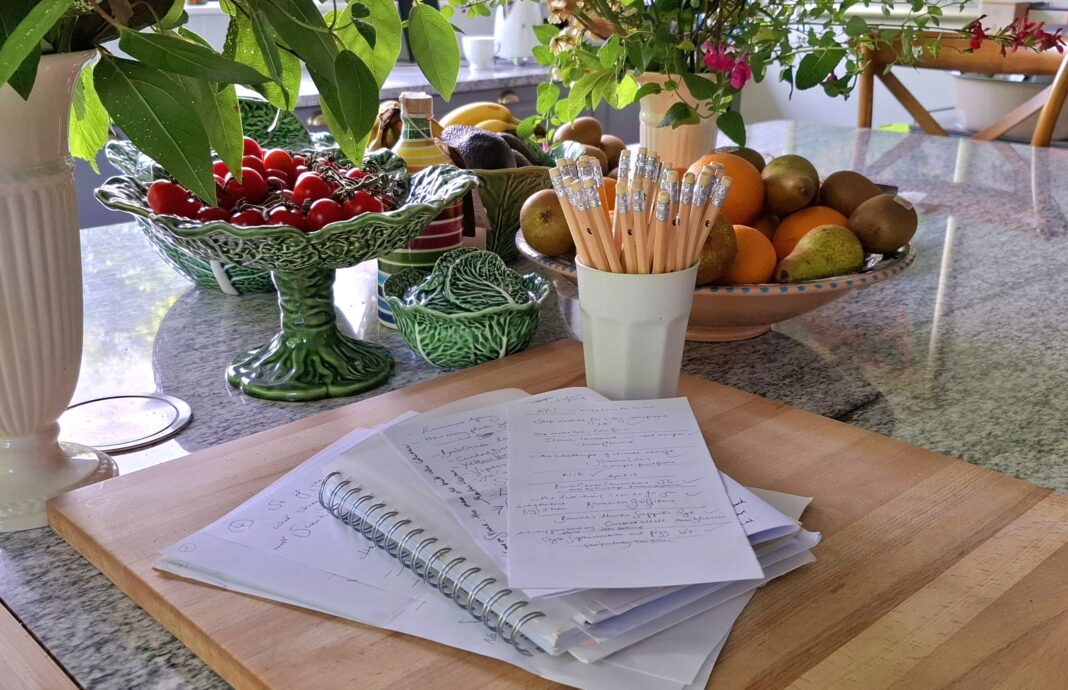What do Leonardo da Vinci and Muhammad Ali have in common?…no?…anyone?…how about Albert Einstein and Marilyn Monroe?…they are all famous dyslexics.
This month’s Winchelsea Second Wednesday Society (WSWS) talk will be given by Mick Bean, also a dyslexic. You may have already met him, as he regularly attends WSWS. While chatting over tea one day, he told me that not only did he not know his own age, but he had no idea what number house he has ever lived at. This is on the extreme end of the scale and involves numbers quite obviously, but dyslexia is more commonly associated with letters, making reading, writing and spelling anything from challenging to impossible.
Previously called ‘word blindness’, it is thought to affect about 10 in every hundred of the population and is classed as a learning difficulty. It is a neurological difference and nothing to do with intelligence. Students are now given 25% extra time in exams, as it’s not the knowledge that is lacking, just the speed at which they can process the question and deliver the answer.
Dyslexics are very often extremely creative. They express themselves in a different language. Many actors, artists, designers, musicians, scientists and mathematicians are dyslexic. They can also be extremely organised, in order to function in day to day life. The actor Susan Hampshire would learn the entire script for instance, unsure of where her co- star’s lines ended and hers began, making her a unique asset to directors. Conversely, da Vinci famously wrote in his own mirrored shorthand for secrecy. Jamie Oliver is another example of someone who has created a distinctive way of communicating his passion and knowledge.
Are you a list writer? Do you organise your thoughts or your day on paper, in order to separate them from everything else that’s happening in your head. Do you read paragraphs several times before absorbing their meaning; unless it’s white words on a black background, which somehow sink in faster. Are you a scrupulous contract reader? Are you the one who corrects press releases because you are so detailed? Do you double and triple check your spelling, because you can see that a word is wrong, even if you’re not sure why? Can you still not tell your left from your right? For me, the answer to all these questions is yes. I didn’t learn to read until I was ten and didn’t open a book till I was twenty. My English spelling has always been dodgy and my French, appalling. When I studied Italian at school, my mother hoped that at last I’d be able to write something accurately; you’ve never seen so many double letters where they shouldn’t be, which apart from looking ridiculous, also changes the meaning of the word!
My father was a great wordsmith. He used the English language like a musical instrument and his spelling was unrivalled. One of the last things he said to me was: “If I was asked for two words to describe you, they would be ‘meticulous’ and ‘methodical'”. I’ll take that, thank you dyslexia.
The irony is that I now write a lot. It takes me an inordinately long time to do so though. When I write these columns for instance, I must re-read, correct and finesse them ten, twenty times, maybe more, before I’m happy to press send.
So come over to the New Hall next Wednesday June 12 at 2.30pm, to find out how Mick has coped throughout his life and career in education. You may have similar issues and found your own coping mechanisms that you can share. He wants the talk to be as interactive as possible, answering questions and sharing anecdotes.
I’ll set the ball rolling: I can’t tell an ‘A’ from a ‘4’…and one of the most confusing words for me to spell properly…is Rye!
Image Credits: Natasha Robinson .



